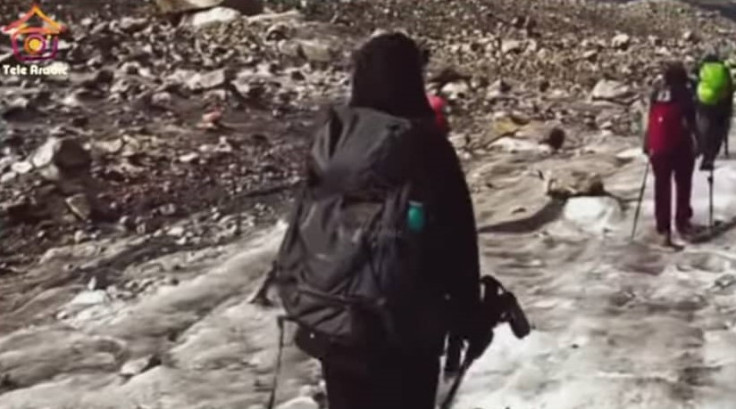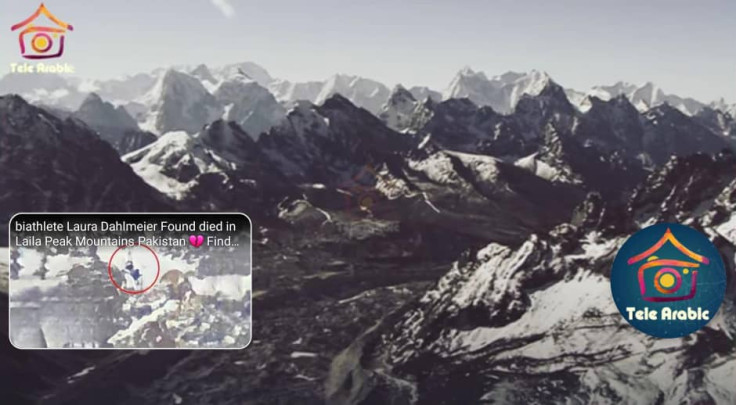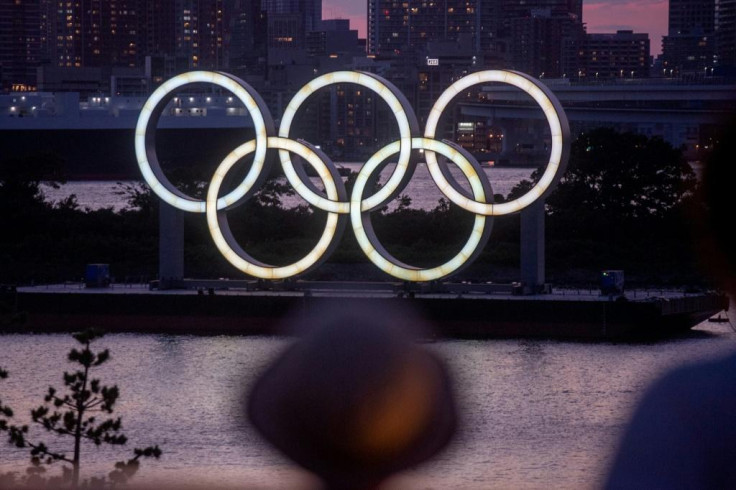Laura Dahlmeier Dead At 31: Why Couldn't They Rescue Her After Mountaineering Accident in Pakistan?
Olympic gold medallist Laura Dahlmeier's fatal fall on Laila Peak highlights the perilous nature of high-altitude rescues—here's what went wrong

Pakistan's treacherous mountain ranges have claimed another world-class sportsperson, as Olympic double gold medallist Laura Dahlmeier joined the grim roll call of athletes who have perished pursuing their passion in the Karakoram's unforgiving peaks.
The 31-year-old German biathlon legend was struck by falling rocks at 5,700 metres on Laila Peak on 28 July during an alpine-style climb with her partner, who was unharmed.
She became the latest high-profile victim of a mountain range that has earned a fearsome reputation amongst the world's climbing elite.
Why Rescue Was Impossible

The Hushe Valley, where the incident occurred, is notoriously remote. Poor visibility, ongoing rain, monsoon season instability, and frequent rockfalls made it impossible for rescue helicopters to approach the site safely in daylight or with low cloud cover.
Due to adverse weather, rescue aircraft could only attempt an overflight on the morning of 29 July. By then, crews found no signs of life and were unable to land due to extreme altitude and unstable terrain. Recovery missions were suspended by nightfall and ultimately called off.
Dahlmeier's Express Wish
Her family and representatives confirmed that Dahlmeier had previously expressed in writing that she did not want rescuers risking their lives to recover her body. Her wishes were honoured, with recovery plans abandoned when conditions deteriorated. Her remains will remain on the mountain.
Expert Response & Coordinated Efforts
Despite the grim outcome, rescue teams, including Pakistani military helicopters and mountaineers from Germany and the US, were dispatched swiftly after her partner descended to base camp and relayed her location. At least two international climbers joined ground efforts.
An international six-member mountaineering team attempted to access the summit via foot, but terrain and weather conditions remained prohibitive. Heavy monsoon-season rain and local landslides and floods had already claimed hundreds of lives in the region, further complicating all operations and underscoring the extreme risks.
The Realities of Karakoram Rescue

High-altitude rescue in ranges like the Karakoram confronts multiple dangers:
- Helicopter performance declines above 5,000 m, with reduced lift and unpredictable winds
- Rockfalls and avalanches are common, especially during the monsoon when ice thaws
- Sudden weather changes create rapidly shifting conditions that can ground aircraft or strand teams
In Dahlmeier's case, the convergence of extreme altitude, severe weather, a remote valley, and rockfall ultimately made rescue impossible without risking further casualties.
The Karakoram's Lethal Legacy
The Karakoram range, home to K2—infamously dubbed the 'Savage Mountain'—has long held a macabre fascination for elite athletes seeking the ultimate challenge. Yet these peaks have repeatedly demonstrated their capacity to humble even the most accomplished mountaineers, claiming lives with avalanches, rockfalls, and sudden weather changes that transform adventure into tragedy.
'These mountains don't discriminate between champions and weekend climbers,' noted one veteran Pakistani rescue coordinator, speaking on condition of anonymity. 'The Karakoram has claimed too many talented lives—athletes who excelled in controlled environments but underestimated nature's raw power.'
Tributes and Legacy

News of Dahlmeier's death prompted an outpouring of tributes. German President Frank-Walter Steinmeier extended his condolences to her family in a heartfelt message, describing her as 'an exceptional sportswoman.'
He also recalled awarding her the Silver Laurel Leaf, the highest honour in German sport, shortly after she secured her first Olympic gold medal in 2018.
'Laura Dahlmeier was an ambassador for our country in the world, a role model for peaceful, cheerful and fair coexistence across borders', he said.
Kirsty Coventry, President of the International Olympic Committee, paid tribute to Laura's historic achievements, saying:
'Laura made history at the PyeongChang 2018 Winter Olympics as the first female biathlete to win sprint and pursuit gold at the same Games edition. She will be remembered forever.'
The German Olympic Sports Confederation remembered Dahlmeier as someone of 'heart, attitude and vision' in a statement on X.
Bavaria's premier, Markus Söder, described her as 'ambitious and successful' yet always 'humble and close to her homeland'.
The International Biathlon Union also extended its sympathies: 'Laura's energy and passion for life touched so many around the world. Her legacy, both within biathlon and beyond, will never be forgotten and will continue to inspire countless athletes and adventurers for generations to come.'
From Podium to Peril
Dahlmeier retired in 2019 after an exceptional career in biathlon. She transitioned into a career as a mountain guide, ski guide, mountain rescue volunteer, and sports commentator. Her decision to forgo a risky body recovery, in line with her deep respect for the mountains and safety for rescuers, speaks volumes about her character.
As tributes pour in from across the sporting world, a harsh truth emerges: Dahlmeier joins a lengthening list of elite athletes whose pursuit of post-competitive thrills led them to Pakistan's mountains and, ultimately, to their deaths. These peaks have become a magnet for champions seeking new challenges, but they offer only one guarantee—that athletic excellence means nothing when the mountain decides your time has come.
The Karakoram has claimed another champion. The question now is not whether these deadly peaks will claim more elite athletes, but when—and who will be next to trade Olympic glory for a mountain grave.
Laura Dahlmeier achieved immortality through sport. She found mortality on Laila Peak in Pakistan.
© Copyright IBTimes 2025. All rights reserved.





















